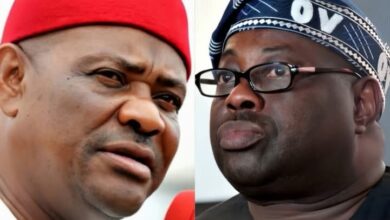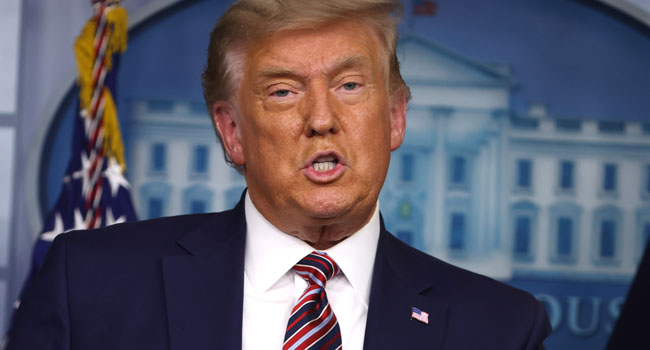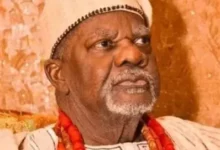Stakeholders honour Fatimah AbdulKareem, ex-NAWOJ President, for reshaping body 6 yrs after office

The conference participants advised that members of both NUJ and NAWOJ should place the interest of the Union first in their choice of leadership adding that what had become of the two great unions today was a product of misplaced priorities, sentiments and lack of vision for the Union reiterating that the welfare vision that propelled great minds to form the union was gradually being replaced with unethical sentiments, which would not augur well for a union with a future.
Six years after leaving office as President of National Association of Women Journalists (NAWOJ), Alhaja Fatimah Abdulkareem has been commended for reinvigorating and reshaping the association during her tenure.
Fatimah left office in 2011 and recontested at the Badagry 2013 electoral conference to have a second shot at the NAWOJ Presidency but failed to reemerge.

Making the commendation during the association’s election in Benin, Edo State capital, tagged, “Edo 2017”, stakeholders clarified that Alhaja AbdulKareem’s inability to return as President of the women journalists’ body in 2013 was not as a result of any inadequacy on her part but to enable another leader emerge from among the many quality based members.
The members in their assessment of past and present leadership of the association agreed that Alhaja Abdulkareem, who was once National Treasurer, NUJ, before her NAWOJ leadership adventure, displayed high sense of managerial capability in the conduct of NAWOJ.
Equipped with wealth of experience in organizational administration, management, human resource development and training which has spanned over twenty three years, Fatimah AbdulKareem has had interface with governmental agencies, private organization, workers, group, trade unions, employers organization and other stakeholders in the employment industry with the objective of facilitating cordial employer-employee relationship on issues bordering on collective bargaining and social dialogue.
The DEFENDER gathered that the National Association of Women Journalists (NAWOJ) admitted at the Edo 2017 election conference that although the former leader, Fatimah, lost her second term bid at Badagry 2013 but that, “it was not because NAWOJIANS do not want her nor did not appreciate her efforts, her refusal was on the ground that the association is a dynamic one blessed with many intelligent members who had excelled in their various places of work as pen pushers creating the need to test more hands and give other member the opportunity to exercise their managerial skills and test their popularity.”
They however reiterated that the influence of male Journalists in who becomes the NAWOJ President could not be overlooked because NAWOJ being a baby of the Nigeria Union of Journalists (NUJ) could not be said to be completely free from the politics at play to which it admitted, “many intrigues are permitted except some unethical conducts which can tell on the integrity of journalists as role models and shapers of the society.
The stakeholders expressed the wish that State Chairpersons and Chairmen in NAWOJ and NUJ took time to teach their members the act of management and participation in union politics adding that over the years, succession had always been the challenge of much organization, NUJ and NAWOJ inclusive.
They also advised that there was the need to encourage upcoming members of NUJ and NAWOJ by creating programmes, which would attract them and enlist their participation in union politics adding that some of them could also be selected to participate in foreign trips which only the old members do enjoy as an eye opener and unexpected opportunities for them.
The conference participants advised that members of both NUJ and NAWOJ should place the interest of the Union first in their choice of leadership adding that what had become of the two great unions today was a product of misplaced priorities, sentiments and lack of vision for the Union reiterating that the welfare vision that propelled great minds to form the union was gradually being replaced with unethical sentiments, which would not augur well for a union with a future.









